Can you remember an Apple product unveiling that went as bad as the Vision Pro? The company known for the iPhone and the Mac had a big task: to convince people to stick a computer on their faces for hours on end, experience the world through cameras and screens, isolate themselves from anyone around them, and pay $3,500 for the privilege. The awkward photos of Tim Cook with the thing on his face in Vanity Fair certainly didn’t help convince people it was a future to embrace.
In the lead up to June 2023 unveiling, the New York Times reported on the internal dissent over the company’s decision to release the product and even Bloomberg’s Apple hype man Mark Gurman had to admit that Cook had mismanaged the project. There were plenty of reasons to believe it was going to be a dud, but there were still a sizeable number of people not willing to write off Apple’s next big thing. After all, this was Apple; one of the most valuable companies in the world that shaped personal computing with the Mac then led the mobile revolution with the iPhone. How could it get a major product release that it had poured $10 billion into so wrong? Its executives must’ve seen something us lowly consumers were missing.
In the days after the Vision Pro’s release in February, there was an initial wave of hype as the early adopters got their hands on it. Videos proliferated of people using it in cars, on streets, and in planes — mainly for views, but it still got the discourse flowing. Even some critics came up with bad justifications to get their hands on one. But that didn’t change the fact it was a bad product that imagined an anti-social future that other companies have tried and failed to foist on the public many times before. And in an all too rare moment, many tech reviewers agreed.
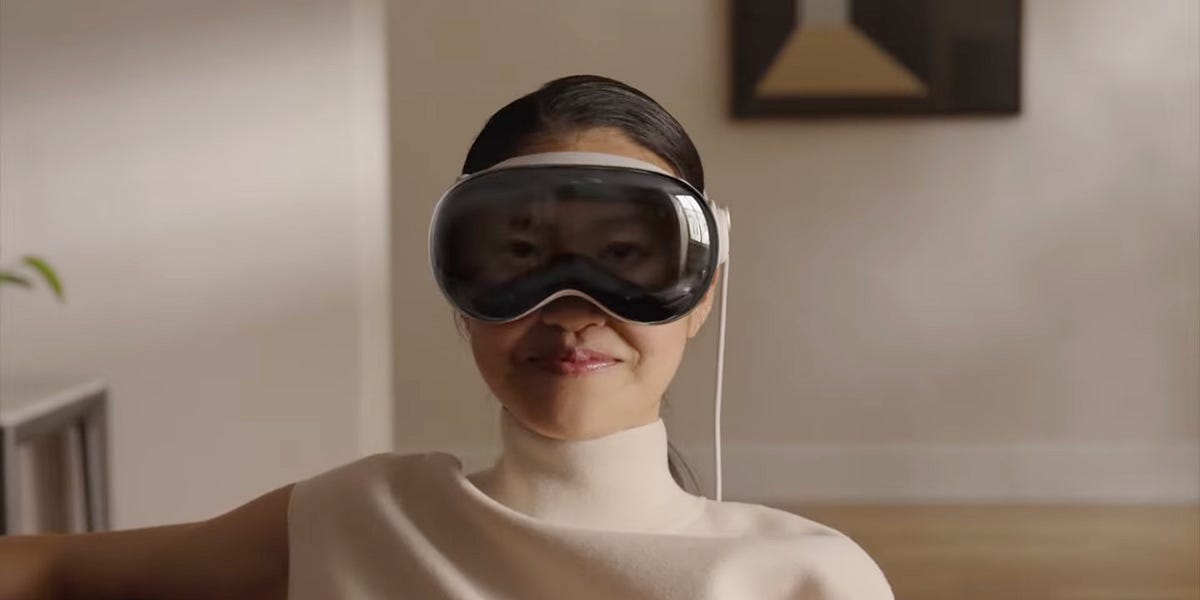
While complimenting the theoretical possibilities the product offered, it was impossible to ignore the many drawbacks on everything from weight to eye strain and headaches to the fact the product just didn’t offer many compelling use cases. Joanna Stern at the Wall Street Journal opined that the Vision Pro was “the best mixed-reality headset I’ve ever tried,” but that companies like Apple know “these aren’t really the devices we want.” At The Verge, Nilay Patel was even more damning, writing that the headset couldn’t “overcome the inherent nature of cameras and display” and “may have inadvertently revealed that some of these core ideas are actually dead ends.” In other words, the Vision Pro wasn’t a first step toward an augmented reality future but a moment to accept that vision would never be properly realized.
The concept of the Vision Pro might have excited some developers in an Apple lab in Cupertino, but most people are never going to use computers in the way those engineers and their managers imagined. Before the 14-day return window closed, there were plenty of reports of people heading back to the Apple store or popping their headsets back in the post to get their money back. They bought into the hype, they tried the new thing, and they ultimately realized it wasn’t worth it. That’s now being reflected in the sales numbers.
Apple initially had a sales target of 3 million Vision Pro units in its first year, but slowly revised that number down to 900,000. When the product was released, estimates pegged initial sales at around 200,000 units, though it’s not clear how many of those were returned. Even people who kept their devices have recently been sharing on social media that they rarely use them anymore. It was no surprise on Tuesday when Apple analyst Ming-Chi Kuo reported Apple had slashed Vision Pro production even before its international launch, expecting to sell as little as 400,000 units this year. Kuo also suggested a cheaper version had been pushed beyond 2025, if the company makes one at all.
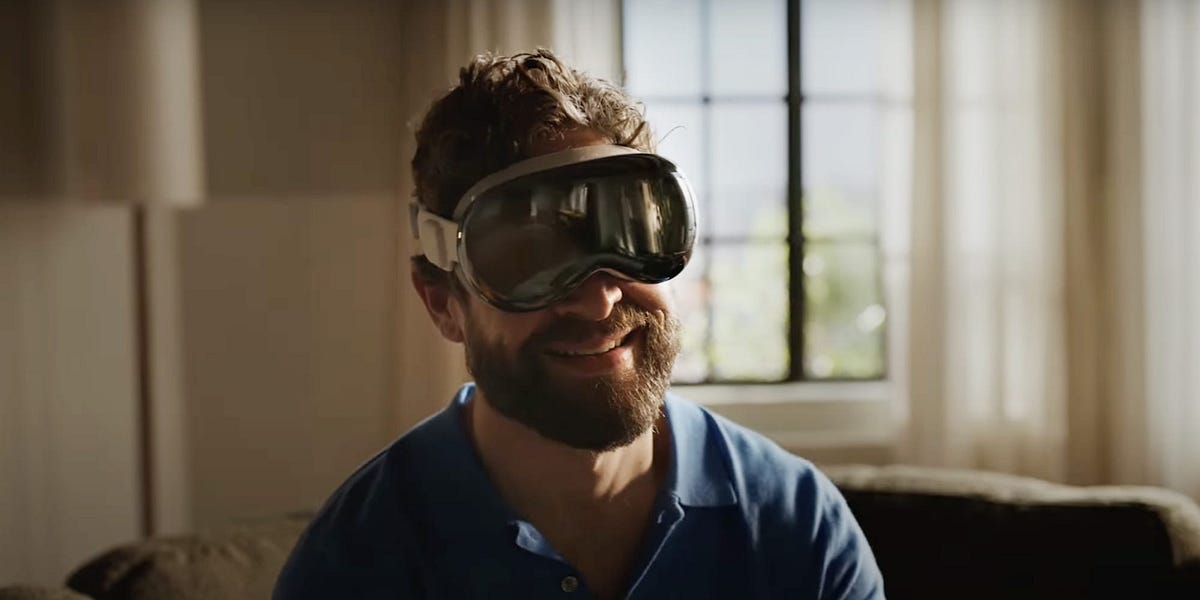
For some companies, selling 400,000 units would be a major achievement. But for a company like Apple that sells well over 200 million iPhones every year, along with tens of millions of Macs and iPads, it’s nowhere near the success they need it to be to justify the resources that went into it. And it’s looking ever more likely it will never get there.
The power of tech criticism
The Vision Pro is just one in a long line of tech failures that includes everything from Juicero to the metaverse to the crypto financial system to the self-driving cars that were supposed to be ubiquitous by now. There’s no doubt the tech industry has upended many parts of our lives by getting us to adopt their digital technologies en masse — sometimes by choice; sometimes by force. But the times the industry was wrong are often overlooked in the narrative of tech’s supposed inevitability.
When a major tech company throws a new product into the world, it’s all too common that people immediately assume it’s something we must accept or even try to justify why it should exist (and succeed) regardless of how good it is. We’ve seen a lot of that over the past year with generative AI. We’re told it’s here so we just need to adjust to it, instead of admitting we do have the collective power to choose how it’s used — if it should be at all.
Some of the tech industry’s failures were because the products sucked. Juicero was an expensive plastic box that squeezed a bag of juice and Theranos’ finger-prick blood tests were a big fraud that eventually sent its founder to prison for 11 years. But crypto’s failure was a mixture of bad product and public opposition, while the metaverse was even more a rejection of a future where we would all be wearing headsets on our faces and socializing in virtual environments instead of with real people in meatspace. Like with Google Glass back in 2014, it was the public revulsion and open criticism that helped defeat those visions tech had for our collective future.
This was put on display recently with the Humane Ai Pin, a dumb aluminium square that you stick on the front of your shirt, use to projects menus on your palm, and is, of course, powered by AI. The product was roundly slammed by reviewers when they finally put it through some real tests earlier this month, but that was after months of reporting that gave the product the benefit of the doubt and echoed its marketing line that it might ultimately be a replacement for the smartphone. Oddly enough, the tech bro backlash to the criticism centered on YouTuber Marques Brownlee, or MKBHD.
Brownlee called the Pin the “worst product I’ve ever reviewed… for now.” He did a deep dive on how poorly the product worked and explained that viewers shouldn’t buy into a product simply because of the vision of what it hopes to be in the future. He’s absolutely right about that. Former AWS engineer Daniel Vassallo was not happy about it though, writing on Twitter that he found it “almost unethical” because reviewers have a duty to “do no harm” — which absolutely is not the case. Reviewers have a duty to be honest with their viewers or readers, though that’s often tempered by a desire to maintain a good relationship with major tech firms.

It’s funny that Brownlee was singled out in this case because he’s the kind of reviewer who will only slam a product if everyone else is going to do it too. He doesn’t often go hard on tech products and tends to give companies the benefit of the doubt, even when they don’t deserve it.
On the Vision Pro, for instance, he weighed the pros and cons while spinning a narrative that the product was indeed the future and was going to take off just like other Apple products before it. Meanwhile, the guy literally drives a Cybertruck and spends part of his review of the monstrosity explaining away the problems with Tesla’s build quality and criticizing those who point to videos of Cybertrucks stuck on a beach, struggling with going off road, and crashing into hotel signs in Beverly Hills for conflating driver error with vehicle deficiencies. The warning against buying into future visions expressed in the Humane Ai Pin review was nowhere to be found; he was all in on whatever future Apple or Tesla was ready to sell him.
No tech is inevitable
When Brownlee dismisses concerns with the Cybertruck or praises the future of what the Vision Pro could be, he’s not doing it because he’s being paid off by Apple or Tesla (though I think he certainly wants to keep his access to those companies). He does honestly believe what he’s saying, but his views are those of a tech booster. He wants to believe the narrative of tech inevitability, and he’s made a good career of echoing it to his followers — which is valuable to the tech companies he often features on his channel.
That narrative of inevitability is used to convince us we don’t have the power to challenge Silicon Valley and just need to accept whatever it throws at us. It might flow out of tech companies’ PR departments, but it’s echoed by well-connected journalists, influential tech publications, and even powerful political figures who effectively tell the public that resistance is futile and we must bow before our silicon overlords. But that’s clearly not true.
The Vision Pro and the Ai Pin are just the latest in a long line of tech failures, and they won’t be the last. We need to recognize that we have the collective power to challenge the industry, and no tech company or access journalist should be able to convince us otherwise. The only way we can hope to build a better future is by seizing that power and using it to rein in an industry that has already caused immense harm and is poised to do far more as it erodes the benefits of its products to squeeze out a bit more profit for greedy shareholders.
🚨 UPDATE (April 28): “One [Apple Store] employee says they haven’t seen one Vision Pro purchase in weeks and that the number of returns equaled the device’s sales in the first month that it was available,” writes Mark Gurman in Bloomberg. Meanwhile, The Verge reports Vision Pro units are selling at a significant discount on eBay.

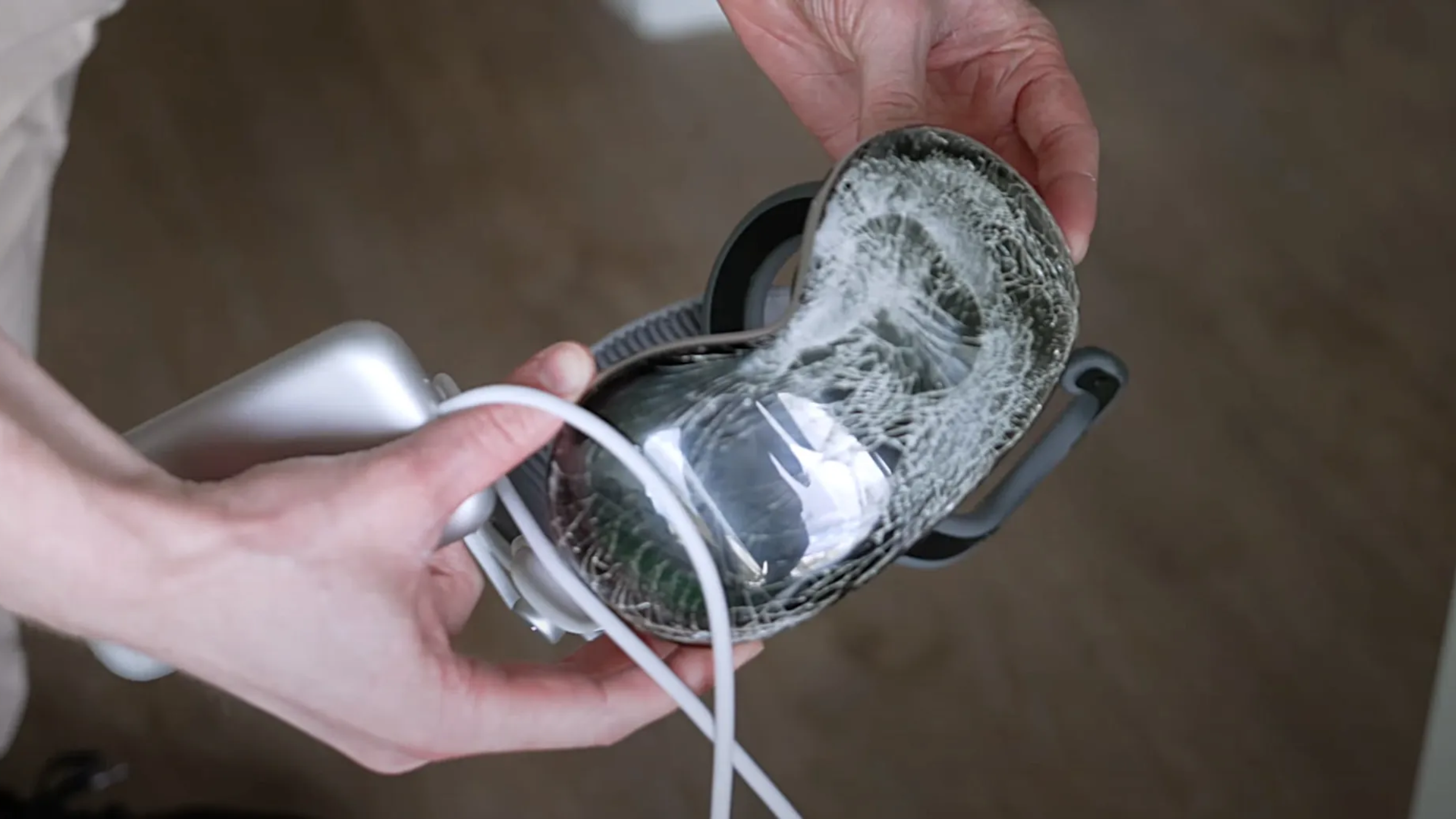
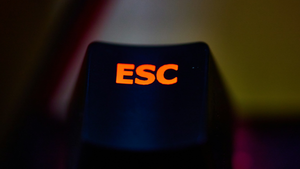
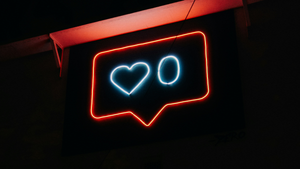
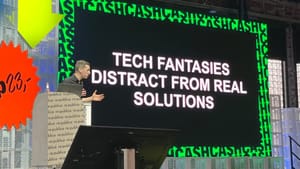



Member discussion